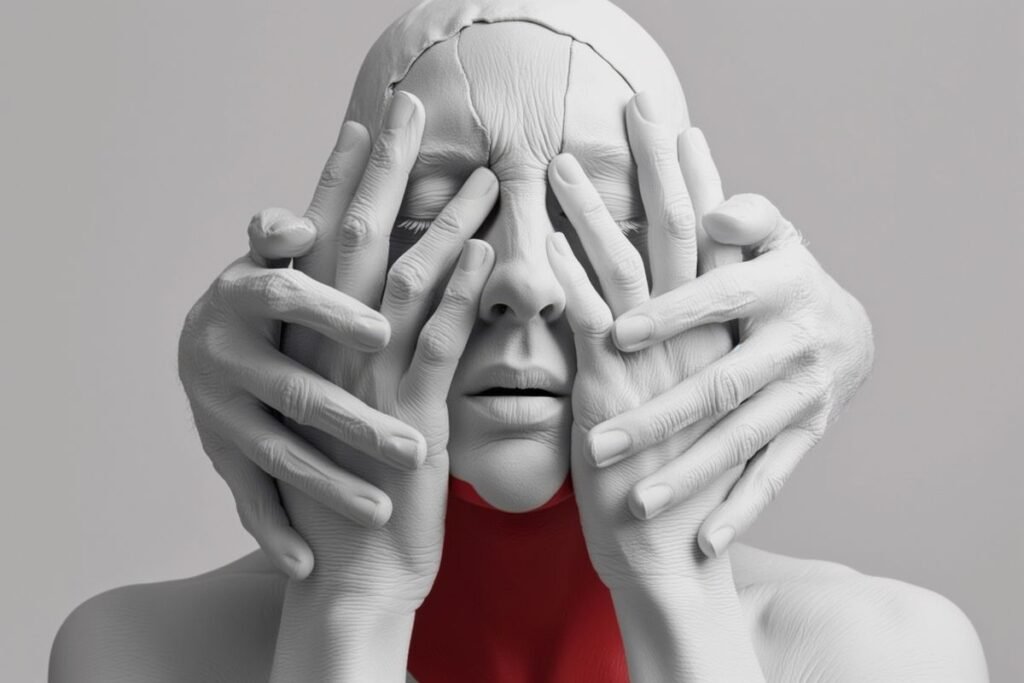Mental Disorders: The 10 Most Common Mental Disorders Affecting Humans Worldwide
Introduction of Mental Disorders
In our rapidly evolving society, mental health issues are increasingly becoming a topic of critical concern. The pressures of modern life, from career challenges to personal responsibilities, have contributed to a rise in mental health disorders globally. These issues affect millions, transcending age, gender, and socioeconomic status. Understanding the most common mental disorders is crucial, not only for those directly affected but also for their families, friends, and communities. By educating ourselves, we can foster a more supportive and empathetic society that addresses mental health issues with the seriousness they deserve.
Mental disorders encompass a wide range of conditions that impact a person’s thoughts, emotions, and behaviors. They can be episodic or chronic, significantly affecting daily functioning and quality of life. This comprehensive article explores the 10 most common mental disorders, offering insights into their symptoms, causes, and treatment options. By gaining a deeper understanding of these conditions, we can better support those affected and promote a healthier, more informed community./

1. Anxiety Disorders
Anxiety disorders are among the most prevalent mental disorders, affecting millions of individuals worldwide. These disorders include generalized anxiety disorder (GAD), panic disorder, social anxiety disorder, and specific phobias. Individuals with anxiety disorders experience excessive and uncontrollable fear or worry that interferes with daily activities.
Symptoms:
- Persistent worry or fear
- Restlessness or feeling on edge
- Fatigue
- Difficulty concentrating
- Irritability
- Muscle tension
- Sleep disturbances
Treatment:
Anxiety disorders are typically managed with a combination of therapy and medication. Cognitive-behavioral therapy (CBT) is particularly effective, helping individuals challenge and change negative thought patterns. Medications such as selective serotonin reuptake inhibitors (SSRIs) or benzodiazepines may be prescribed to alleviate symptoms.
2. Major Depressive Disorder (MDD)
Major depressive disorder, commonly known as depression, is a severe mental health condition characterized by persistent feelings of sadness, hopelessness, and a lack of interest or pleasure in activities. It affects millions of people and can significantly impair daily functioning.
Symptoms:
- Persistent sadness or low mood
- Loss of interest in previously enjoyed activities
- Changes in appetite or weight
- Sleep disturbances
- Fatigue or low energy
- Feelings of worthlessness or guilt
- Difficulty concentrating
- Thoughts of death or suicide
Treatment:
Depression is often treated with a combination of psychotherapy and medication. Cognitive-behavioral therapy (CBT) and interpersonal therapy (IPT) are effective approaches. Antidepressants, particularly SSRIs and serotonin-norepinephrine reuptake inhibitors (SNRIs), are commonly prescribed to manage symptoms.
3. Bipolar Disorder
Bipolar disorder, also known as manic-depressive illness, is characterized by extreme mood swings that include emotional highs (mania or hypomania) and lows (depression). These shifts in mood can affect energy levels, activity, and the ability to carry out daily tasks.
Symptoms:
- Manic phase: elevated mood, increased energy, reduced need for sleep, impulsive behavior, and grandiosity
- Depressive phase: persistent sadness, fatigue, feelings of hopelessness, and suicidal thoughts
Treatment:
Bipolar disorder is typically managed with a combination of medication and psychotherapy. Mood stabilizers, such as lithium, and antipsychotic medications are commonly used. Psychotherapy, including CBT and family-focused therapy, can help individuals manage symptoms and improve relationships.
4. Schizophrenia
Schizophrenia is a severe mental disorder that affects how a person thinks, feels, and behaves. Individuals with schizophrenia may seem like they have lost touch with reality, which can be distressing for them and their families.
Symptoms:
- Delusions
- Hallucinations
- Disorganized thinking
- Extremely disorganized or abnormal motor behavior
- Negative symptoms, such as reduced emotional expression or lack of motivation
Treatment:
Schizophrenia treatment typically involves antipsychotic medications to manage symptoms. Psychotherapy, particularly cognitive behavioral therapy (CBT), can also be beneficial. Supportive therapies, including social skills training and family therapy, are important for long-term management.
5. Obsessive-Compulsive Disorder (OCD)
Obsessive-compulsive disorder is characterized by unwanted and intrusive thoughts (obsessions) and repetitive behaviors or mental acts (compulsions) that individuals feel driven to perform.
Symptoms:
- Obsessions: persistent, unwanted thoughts, urges, or images that cause distress
- Compulsions: repetitive behaviors or mental acts aimed at reducing anxiety related to obsessions
Treatment:
OCD is often treated with a combination of cognitive-behavioral therapy (CBT), specifically exposure and response prevention (ERP), and medication. SSRIs are commonly prescribed to help manage symptoms.
6. Post-Traumatic Stress Disorder (PTSD)
Post-traumatic stress disorder is a mental health condition triggered by experiencing or witnessing a traumatic event. It can cause severe symptoms that affect daily life.
Symptoms:
- Intrusive memories or flashbacks
- Avoidance of reminders of the trauma
- Negative changes in thinking and mood
- Changes in physical and emotional reactions, such as being easily startled or feeling tense
Treatment:
PTSD treatment often involves psychotherapy, such as cognitive processing therapy (CPT), prolonged exposure therapy, and eye movement desensitization and reprocessing (EMDR). Medications, including SSRIs and SNRIs, can also be helpful.
7. Attention-Deficit/Hyperactivity Disorder (ADHD)
Attention-deficit/hyperactivity disorder is a neurodevelopmental disorder that affects both children and adults. It is characterized by symptoms of inattention, hyperactivity, and impulsivity.
Symptoms:
- Inattention: difficulty sustaining attention, careless mistakes, disorganization, and forgetfulness
- Hyperactivity: excessive fidgeting, difficulty staying seated, and talking excessively
- Impulsivity: interrupting others, difficulty waiting for a turn, and acting without thinking
Treatment:
ADHD is typically treated with a combination of behavioral therapy and medication. Stimulant medications, such as methylphenidate and amphetamines, are commonly prescribed. Non-stimulant medications and behavioral interventions can also be effective.
8. Eating Disorders
Eating disorders, including anorexia nervosa, bulimia nervosa, and binge-eating disorder, involve serious disturbances in eating behavior and related thoughts and emotions.
Symptoms:
- Anorexia nervosa: extreme restriction of food intake, intense fear of gaining weight, and distorted body image
- Bulimia nervosa: episodes of binge eating followed by compensatory behaviors such as vomiting or excessive exercise
- Binge-eating disorder: recurrent episodes of eating large quantities of food, often quickly and to the point of discomfort
Treatment:
Eating disorders are often treated with a combination of psychotherapy, nutritional counseling, and medical monitoring. Cognitive-behavioral therapy (CBT) is effective for many eating disorders. Medications, such as antidepressants, can also be helpful.
9. Borderline Personality Disorder (BPD)
Borderline personality disorder is characterized by intense emotions, unstable relationships, and impulsive behaviors. Individuals with BPD often experience rapid mood swings and a distorted self-image.
Symptoms:
- Fear of abandonment
- Unstable relationships
- Impulsive behaviors
- Self-harm or suicidal behavior
- Rapid mood swings
- Chronic feelings of emptiness
- Intense anger
Treatment:
BPD is commonly treated with psychotherapy, particularly dialectical behavior therapy (DBT), which focuses on teaching coping skills to manage emotions and improve relationships. Medications may be prescribed to manage specific symptoms.
10. Autism Spectrum Disorder (ASD)
Autism spectrum disorder is a developmental disorder that affects communication and behavior. Symptoms typically appear in early childhood and vary widely in severity.
Symptoms:
- Difficulty with communication and interaction
- Repetitive behaviors and restricted interests
- Challenges with social skills
- Sensory sensitivities
Treatment:
Treatment for ASD often involves behavioral interventions, such as applied behavior analysis (ABA), which focuses on improving specific skills. Speech therapy, occupational therapy, and educational support are also important components of treatment. Medications may be prescribed to manage specific symptoms.
Conclusion
Understanding the mental disorders is a crucial step in promoting mental health awareness and support. These conditions affect millions of people worldwide, impacting their daily lives and overall well-being. By recognizing the symptoms and seeking appropriate treatment, individuals can manage their conditions and lead fulfilling lives. As a society, it is essential to foster an environment of empathy, understanding, and support for those affected by mental health issues. By doing so, we can break down the stigma surrounding mental disorders and ensure that everyone has access to the care and resources they need.
Mental health is a vital aspect of overall health, and addressing mental disorders with compassion and knowledge is key to building a healthier, more supportive community. Whether you are personally affected by a mental disorder or know someone who is, understanding these conditions can lead to better outcomes and a more inclusive society.
By prioritizing mental health education and support, we can make a significant difference in the lives of those affected by mental disorders. Remember, seeking help is a sign of strength, and there are resources available to guide you on the path to better mental health.
See more about Mental Disorders.
See too The 10 Most Common Diseases Affecting Humans Worldwide.



